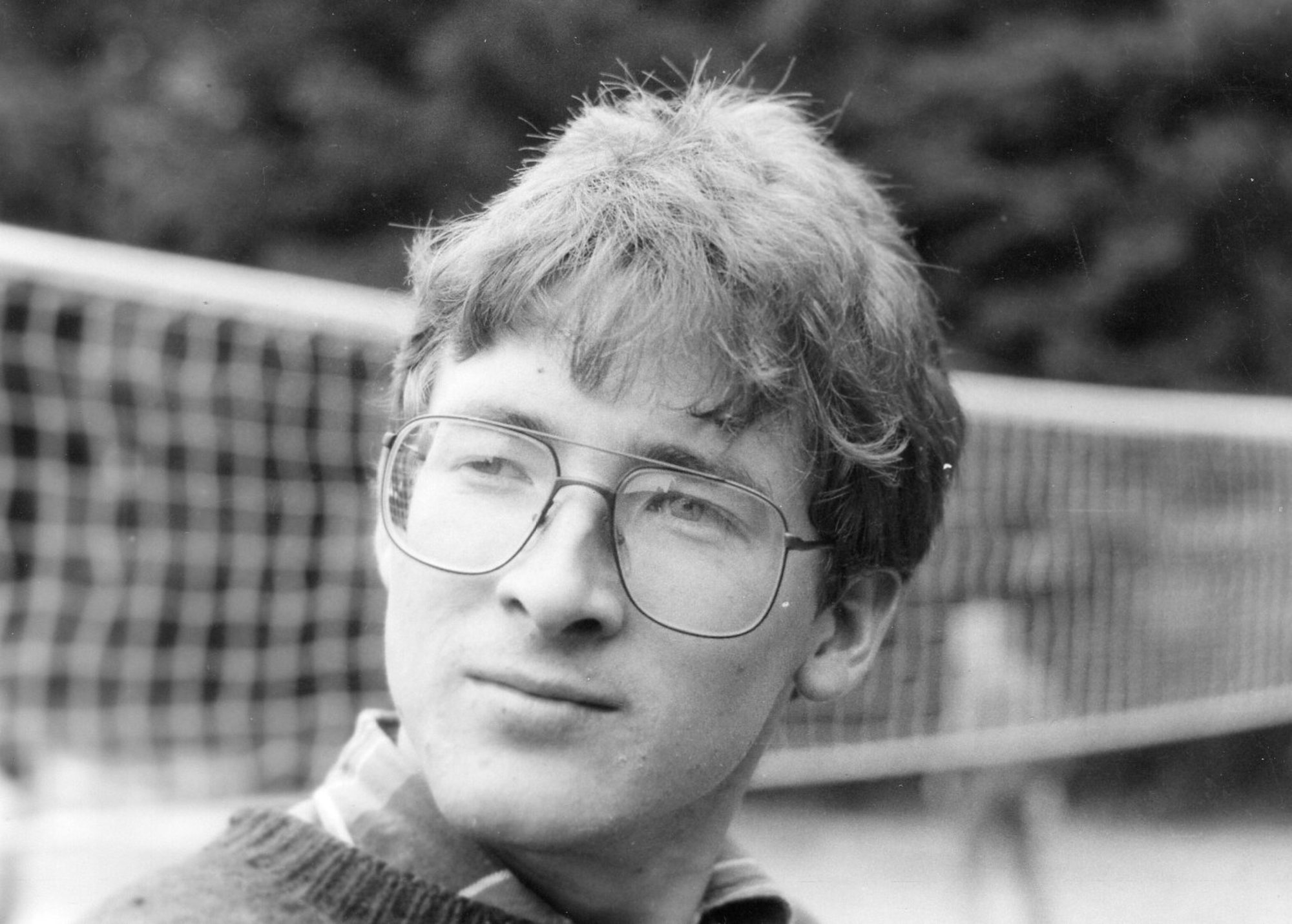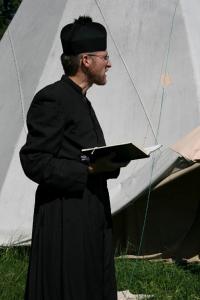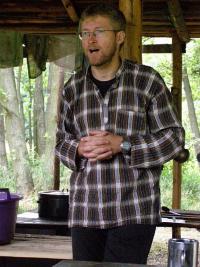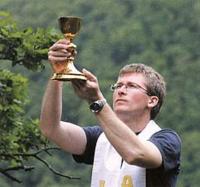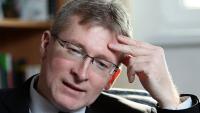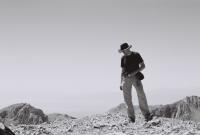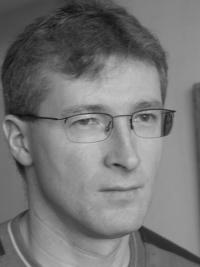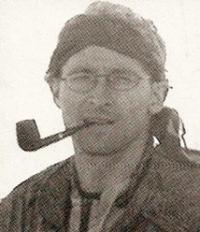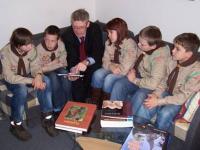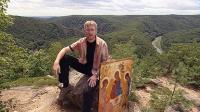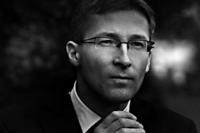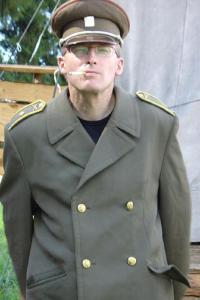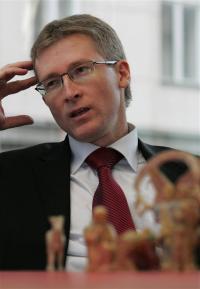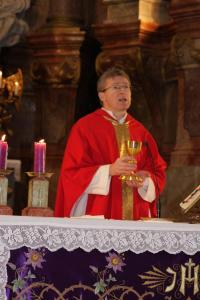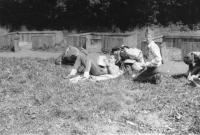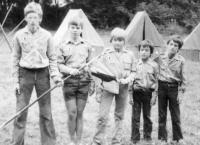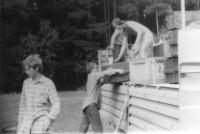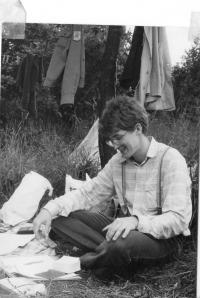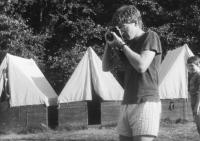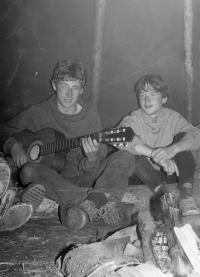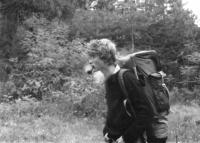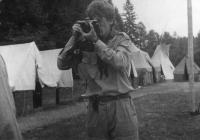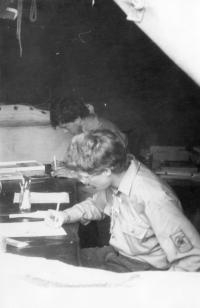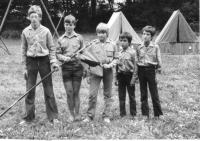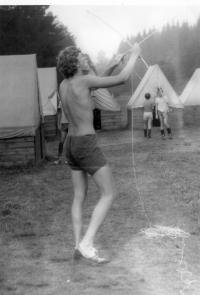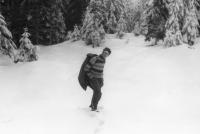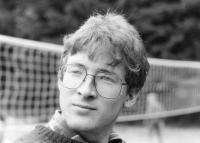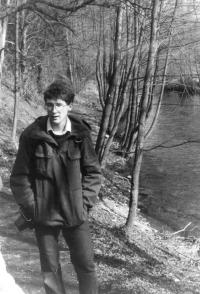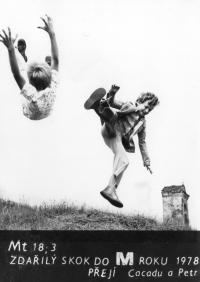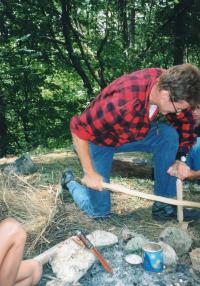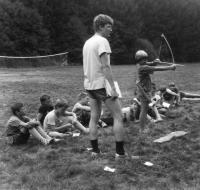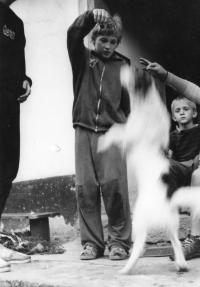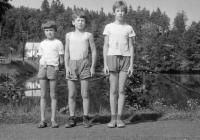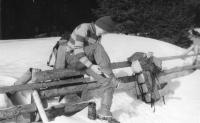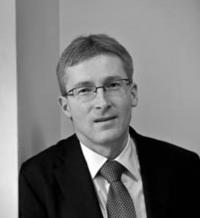Rarely can a man do something so right and so good as when he’s a Scout leader
Marek Orko Vácha was born on 14 September, 1966, in Brno, in a Catholic family. Since 1977, he’s served as an altar boy in the Church of St. Thomas in Brno. The group of altar boys was in fact also an undercover scout troop. Since 1976, Marek began to attend their camps in the village Skála. At his first camp, he was given the nickname “Orko”. In 1981, the troop began organizing tent camps nearby the village Mysletín. In his youth, Marek developed a great interest in nature and he learned to study animals in their natural environment with his uncle – a biologist – and his friends. He graduated from the Faculty of Sciences in Brno, Department of Molecular Biology and Genetics. Then, in 1990, he continued with studies of theology in Olomouc and he spent his fourth year of studies in Brussels. The study was too much time-consuming for him to be able to actively engage in Scouting at the same time. Nevertheless, he at least took part in the camps. He and his friends began to organize co-educational camps for high school students. Orko passed the “Oikos” leadership course and worked for several years as an instructor. In 2002, he spent half a year living in a Trappist monastery in France. He currently works as the head of the Institute of Ethics of the third Faculty of Medicine. At the same time, he is a parish priest in Lechovice and a chaplain at the Holy Savior. Marek Vácha is also a writer and has published nine books.
